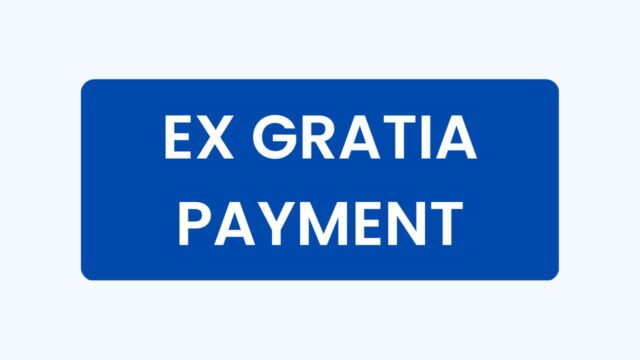
What is an ex gratia payment
An ex gratia payment is a voluntary payment that is made without any admission of liability or legal obligation. Ex gratia payments are typically made in order to reach an amicable resolution to a dispute, and they are not tax-deductible. In some cases, ex gratia payments may be covered by insurance. However, it is important to note that ex gratia payments are not the same as damages, which are awarded by a court as a result of a finding of liability. Damages are intended to compensate the victim for losses, while ex gratia payments are made as a gesture of goodwill. As such, ex gratia payments cannot be enforced by law.
What are the benefits of making an ex gratia payment
An ex gratia payment is a sum of money paid by an employer to an employee, over and above any contractual entitlement, as a gesture of goodwill. While there is no legal obligation to make such a payment, it can be used to resolve disputes and avoid potential employment tribunal claims. In some cases, an ex gratia payment may also be used to settle a matter outside of the normal grievance or disciplinary process. There are a number of advantages to making an ex gratia payment, including the following:
- It can help to resolve a dispute quickly and amicably, without the need for costly and time-consuming legal action.
- It can show that an employer is willing to take responsibility for its actions and put things right.
- It can improve employee morale and motivation, as well as increasing loyalty and commitment.
- It can help to prevent negative publicity and safeguard an employer’s reputation.
How to make an ex gratia payment
Making an ex gratia payment is relatively simple. The first step is to decide how much money you want to give. It is important to be realistic about what you can afford to pay, as over-generous payments can create difficulties down the line. Once you have decided on an amount, you will need to find a way to get the money to the recipient. This can be done by writing a cheque, making a bank transfer, or using a third-party service such as PayPal. Finally, it is important to keep records of the payment so that you can demonstrate its altruistic nature if necessary. Ex gratia payments can be a great way to show your support for someone in need, but it is important to approach them with care and attention.
Who can receive an ex gratia payment
An ex gratia payment is a sum of money that is paid to an individual as a goodwill gesture, and is not legally binding. These payments are often made by companies or organisations in order to avoid potential legal action, or to acknowledge wrongdoing. Ex gratia payments are typically made in cases of wrongful dismissal, sexual harassment, or other forms of discrimination.
However, they can also be given for less serious offences, such as lateness or poor performance. In order to receive an ex gratia payment, the individual must first make a claim against the company or organisation. If the claim is successful, the company will then offer a settlement sum, which may be paid in installments or as a lump sum. Ex gratia payments are not taxable, and do not need to be reported to the tax authorities.
What happens if an ex gratia payment is not made
An ex gratia payment is a voluntary payment made by an employer to an employee, often in cases of dismissal or other hardship. These payments are not required by law, and as such, there is no legal consequences for failing to make one. However, ex gratia payments can be important in maintaining good relations with employees and avoiding litigation. In some cases, an employer may be contractually obligated to make an ex gratia payment, so it is important to check the terms of any employment agreement before making a decision. If an ex gratia payment is not made, the employee may choose to pursue other legal avenues, such as filing a complaint with the Equal Employment Opportunity Commission or filing a lawsuit.
Things to consider before making an ex gratia payment
There are a few things that employers should take into consideration. First, they need to consider whether the payment is tax-deductible. Second, they need to consider whether the payment will be considered taxable income for the employee. Finally, they need to consider whether the payment will be subject to any deductions from the employee’s severance pay or retirement benefits. Making an ex gratia payment can be a complicated process, so it’s important that employers consult with a professional before making any decisions.
How to appeal an ex gratia payment decision
If you disagree with a decision about an ex gratia payment, you can ask for the decision to be reviewed. This is called an ‘internal review’. An internal review will usually be done by someone who was not involved in the original decision. You can request an internal review by contacting the department that made the decision. You will need to explain why you think the decision is wrong and provide any new information that you would like to be considered.
If you are still not happy with the decision after an internal review, you can ask for a ‘ merits review’. This is where an independent body reviews the decision to make sure it was fair and reasonable. You can contact the Administrative Appeals Tribunal to request a merits review. You will need to provide evidence to support your case and explain why you think the decision is wrong. The tribunal will then decide whether or not to uphold the original decision. If you are still not satisfied with the outcome, you can seek legal advice about your options.


































